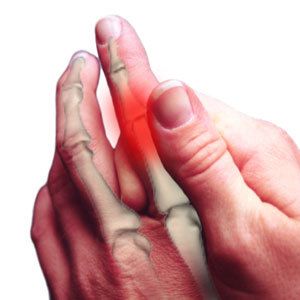Apremilast and the Future of Psoriatic Arthritis Treatment
When it was approved by the FDA in March 2014, apremilast became the first oral medication approved for the treatment of psoriatic arthritis (PsA). Data from clinical trials showed it to be an effective option for patients, with a safer side effect profile than currently used PsA treatments.

Talk to nearly any rheumatologist and you quickly discover that new treatments for psoriatic arthritis (PsA) fail to keep pace with treatments for other diseases, such as rheumatoid arthritis. For that reason, phase 3 trials aimed at treatment for the disease garner much anticipation.
On March 21, 2014, the FDA approved apremilast (marketed as Otezla®), an oral phosphodiesterase 4 inhibitor, to treat adults with active psoriatic arthritis.
Participants in a 24-week phase 3 randomized clinical trial took apremilast at 20 mg twice a day or 30 mg once a day, with other disease-modifying antirheumatic drugs (DMARDs). According to research published in the March 2014 issue of Annals of Rheumatic Disease, people on apremilast showed symptom improvement compared to placebo.
“Significantly more apremilast 20 mg BID (31%) and 30 mg BID (40%) patients achieved ACR20 versus placebo (19%) (p<0.001), the study authors wrote.
ACR (American College of Rheumatology) 20 is the minimum score indicative of symptom improvement associated with joints. Higher ACR scores are synonymous with higher levels of improvement. Some people achieved ACR50 and ACR70 scores. (ACR50, at 20 mg and 30 mg respectively, 14.7% and 19.9%; ACR 70, at 20 mg and 30 mg, 5.5% and 10.6%).
To assess joint symptoms and improvements, physicians used HAQ-DI score and the Short-Form Health Survey v2 Physical Functioning domain score. They also took into account their patient’s reporting of pain.
Lead study author Arthur Kavanaugh, MD, Director of the Center for Innovative Therapy at UC San Diego School of Medicine, said, “The drug can have good efficacy for some patients, and it seems to be very well tolerated.”
The results suggest that people on 30 mg showed better “response rates” compared to placebo.
Regarding the differences in dosage, Kavanaugh said, “Most of the responses were either similar or with higher doses they [patients] did a little bit better.”
He continued, “Doctors do like to play around with dosing… Might there be different doses in the future? … That remains to be seen.”
Of the 504 participants in the RCT, some were previously prescribed traditional disease-modifying antirheumatic drugs (DMARDs) and/or biologics. However, the authors noted that “Prior tumor necrosis factor blocker efficacy failures were limited to ≤10% of enrolled patients.”
To assess skin improvement, researchers used the Psoriasis Area and Severity Index (PASI). Results suggest that patients on the drug showed significant skin clearing, compared to placebo
“In patients with baseline psoriasis affecting ≥3% of the body surface area, significantly greater proportions of patients receiving either dose of apremilast achieved at least 50% reduction from baseline Psoriasis Area and Severity Index11 (PASI-50) score (apremilast 20 mg BID: 25/74 (33.8%), p = .0439; apremilast 30 mg BID: 41/81 (50.6%), p = .0001) and PASI-75 score (13/74 (17.6%), p = .0180; 17/81 (21.0%), p = .0040) versus placebo (PASI-50: 12/65 (18.5%); PASI-75: 3/65 (4.6%)).
Side Effects
Gastrointestinal symptoms were most commonly reported in people who tried the medication; other adverse effects included diarrhea, nausea, headache and upper respiratory tract infection. Considered a pregnancy category C drug, it is unclear how apremilast is tolerated among pregnant women or their babies.
Patients with a history of depression or suicidality should be screened, because people on apremilast showed higher rates of depression (1.0%) compared to placebo group (0.8%), according to the American College of Rheumatology.
In addition, the FDA suggests monitoring for significant weight loss for people using this drug.
“If unexplained or clinically significant weight loss occurs, the weight loss should be evaluated and discontinuation of treatment should be considered. Treatment with Otezla was also associated with an increase in reports of depression compared to placebo,” states an FDA press release.